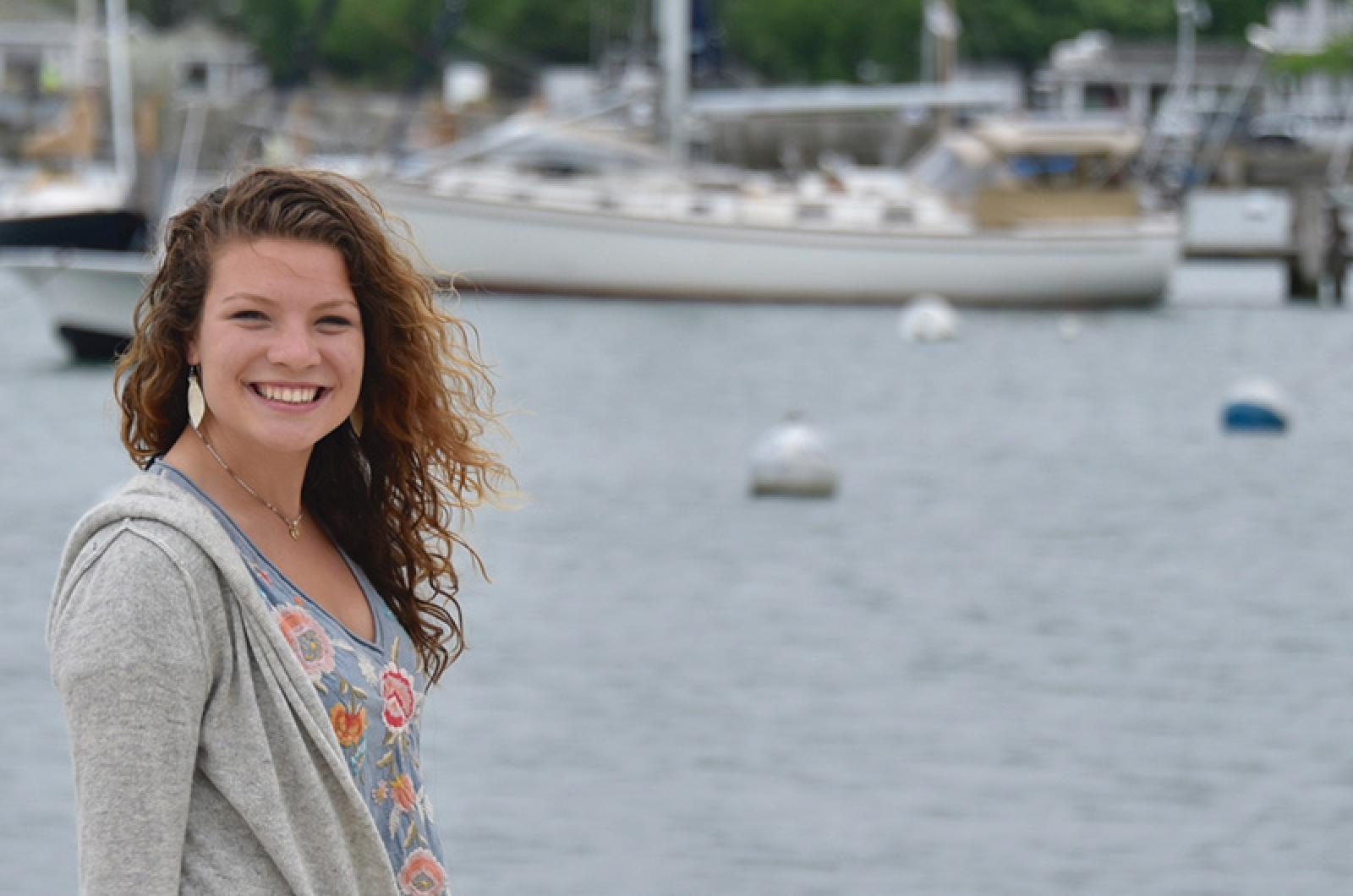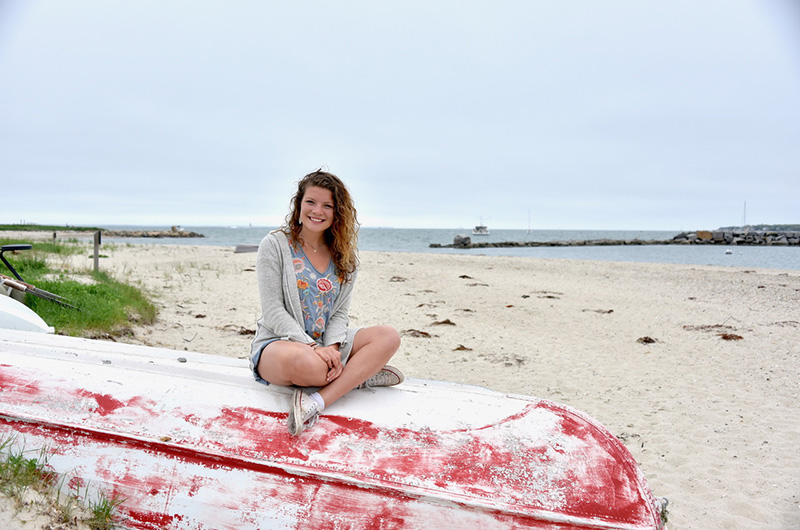Both the student body president and the senior class valedictorian usually give a speech at the regional high school graduation. This year, one person fills both those roles.
Rose Engler has made a habit of saying yes to every opportunity that comes her way, and that practice has served her well.
“Sometimes that’s gotten me into being kind of a busy person,” she said sheepishly.
She is captain of three varsity teams (track and field, soccer, and basketball), and editor-in-chief of the student newspaper The High School View. She is also president of the community service club Interact, president of the school’s chapter of the National Honor Society, and she played cello in the school orchestra. “Saying yes to everything has taught me and shown me so much,” she said. “There are so many things that I’ve realized I want to do that I had no idea that I liked.”
One morning in chemistry class comes to mind. It was sophomore year. Her cell phone was dead, and she and her friend Kat Roberts looked longingly out a sunny window.
“If we could just set our phones here on this windowsill to charge them, that would be so amazing,” she remembered saying.
Thus was born a two-year project to build a solar-powered cell phone. From scratch.
“We had no background knowledge, nothing, we just decided we wanted to do it,” Rose said.
The process took them to regional science fairs and to the New York world-maker faire.
“We spent hours and hours and months, it was actually probably the hardest thing I did in high school,” Rose said.
The pair accumulated mentors and advice along the way, and ultimately made a working touchscreen phone that could charge on that chemistry class windowsill. Rose still has it, but opts to use a regular cell phone since the built-in solar panel adds a lot of bulk.
Rose will be attending Brown University next year with the help of an MV Youth scholarship. She was accepted to Brown’s highly competitive program in liberal medication education. The program includes admission to undergraduate studies in an area of the student’s choice and automatic admission to Brown medical school four to six years later.
She has wanted to be a doctor since she was about 10 years old. She was on a family vacation and they saw a group of ambulances surrounding what seemed like a serious accident.
“I remember wanting to go see what happened so badly, wanting to go see the guy who was hurt,” she said. “After that point I was like how can I do that, maybe I should become a doctor.”
Last summer she decided she wanted to shadow a physician, just to be sure. After learning only students in the health assisting program could shadow at Martha’s Vineyard Hospital, she contacted doctors in Providence, where her grandmother lives.
“I emailed five doctors or something and I thought maybe one of them would say yes,” she said. “But they all said yes.”
She spent the first two days shadowing a doctor in a women’s health clinic.
“I’d sit in on a check-up and she would explain what was happening, like someone had a rash or someone had a headache. I was like this is so cool, this is what I want to do,” Rose said. She was enchanted.
But then she shadowed a surgeon in the trauma intensive care unit.
“People are literally being pulled in from motorcycle accidents and car crashes, and I saw someone do like trachs and these crazy procedures,” she recalled eagerly. She decided surgery is her calling. “By the end, they were totally letting me watch everything because they realized I wasn’t going to faint.”
Medicine has touched her life in a more intimate way too. Her youngest sister, Lucy, is nine and has cerebral palsy and microcephaly.
“That could also be part of what made me want to go into medicine,” Rose said. “Being there with my sister throughout all the surgeries she’s had.”
Rose wants to travel the world, bringing medical expertise with her. The summer after her sophomore year in high school, she participated in the state department’s American Youth Leadership Program, which took her to Chiapas, Mexico for three weeks.
“That’s what really cemented that I want to travel and provide medicine,” she said. She added: “The world is so big, and I want to live in so many different places.”
Rose and her family moved to Martha’s Vineyard when she was in the fifth grade, and she said that gave her perspective on how lucky Islanders are to live here.
“I didn’t take living here for granted,” she said. She recalled a childhood full of potlucks and sleeping on the beach. “I really took advantage of every moment living here and really squeezed the most out of the Island and the community here.”
She has left her mark on the high school, working to incorporate more independence into students’ schedules.
“Our school is very sheltered, we have to have bathroom passes to go to the bathroom. Everyone’s watching everything you do,” she said. She said she thinks that culture contributes to some students’ difficulties making it through college after leaving the Island.
Together with others on student council, she devised an alternative policy that would allow seniors more independence. The policy would allow seniors a free period during the day, during which they could walk around surrounding areas, arrive late to school if they didn’t have a class, or leave early. Rising seniors began a trial period of the open campus policy this month.
Before she launches into the world this fall, Rose will spend the summer doing several odd jobs around the Island, nannying and gardening.
“In the past summers, I’ve always been doing things and also working,” she said. “So this summer I wanted to go in not working, but then I keep getting these opportunities”
And she couldn’t help but say yes.









Comments (2)
Comments
Comment policy »